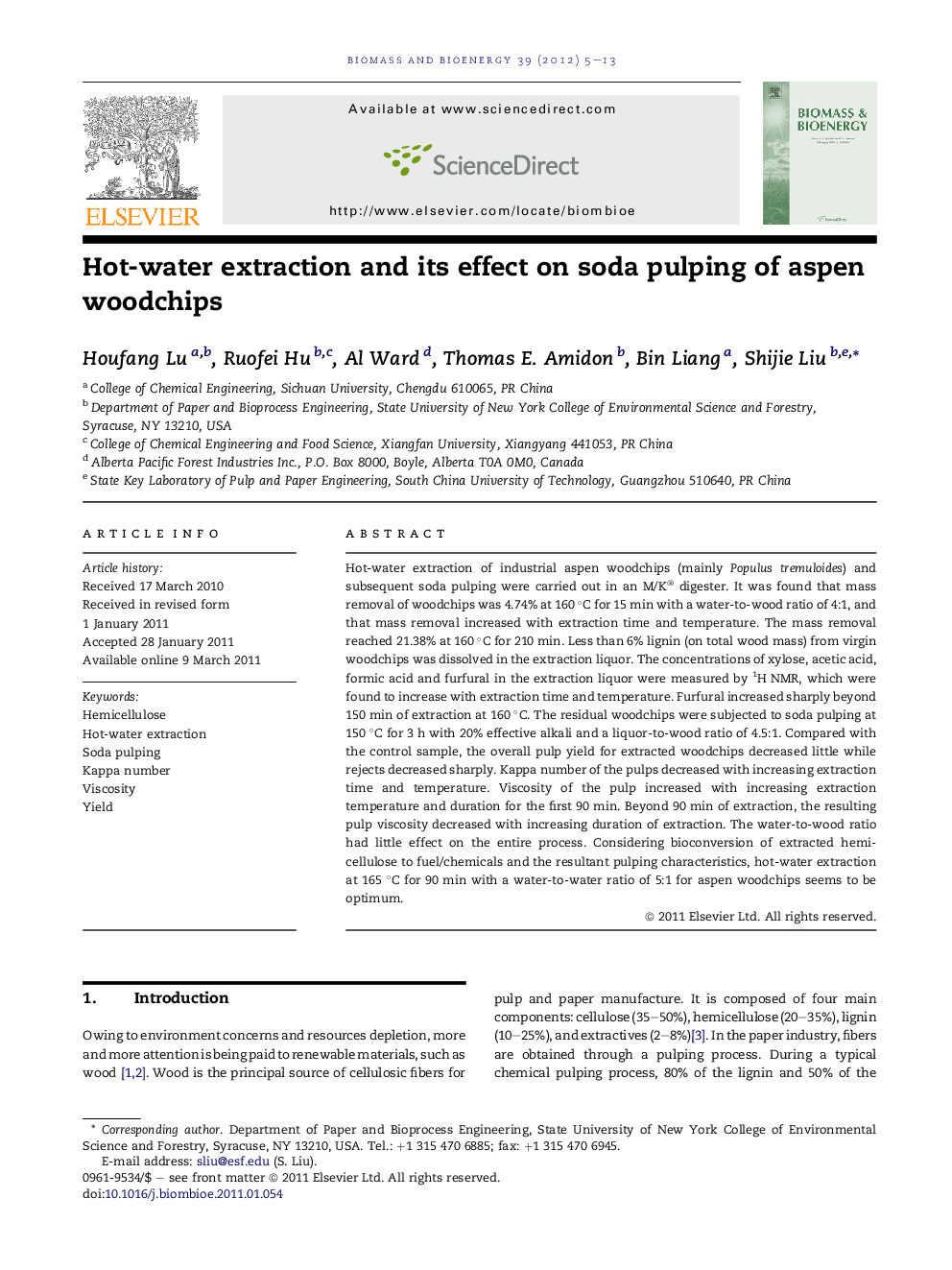| Article ID | Journal | Published Year | Pages | File Type |
|---|---|---|---|---|
| 677478 | Biomass and Bioenergy | 2012 | 9 Pages |
Hot-water extraction of industrial aspen woodchips (mainly Populus tremuloides) and subsequent soda pulping were carried out in an M/K® digester. It was found that mass removal of woodchips was 4.74% at 160 °C for 15 min with a water-to-wood ratio of 4:1, and that mass removal increased with extraction time and temperature. The mass removal reached 21.38% at 160 °C for 210 min. Less than 6% lignin (on total wood mass) from virgin woodchips was dissolved in the extraction liquor. The concentrations of xylose, acetic acid, formic acid and furfural in the extraction liquor were measured by 1H NMR, which were found to increase with extraction time and temperature. Furfural increased sharply beyond 150 min of extraction at 160 °C. The residual woodchips were subjected to soda pulping at 150 °C for 3 h with 20% effective alkali and a liquor-to-wood ratio of 4.5:1. Compared with the control sample, the overall pulp yield for extracted woodchips decreased little while rejects decreased sharply. Kappa number of the pulps decreased with increasing extraction time and temperature. Viscosity of the pulp increased with increasing extraction temperature and duration for the first 90 min. Beyond 90 min of extraction, the resulting pulp viscosity decreased with increasing duration of extraction. The water-to-wood ratio had little effect on the entire process. Considering bioconversion of extracted hemicellulose to fuel/chemicals and the resultant pulping characteristics, hot-water extraction at 165 °C for 90 min with a water-to-water ratio of 5:1 for aspen woodchips seems to be optimum.
Graphical abstractFigure optionsDownload full-size imageDownload as PowerPoint slideHighlights► Industrial aspen woodchips are extracted by hot-water and subsequently pulped. ► Extraction time and temperature affect the mass removal and the composition of extracts. ► The rejects for extracted woodchips decreased sharply. ► Kappa number and viscosity of pulps are affected by extraction condition. ► After hot-water extraction, the woodchips are well conditioned for pulping.
